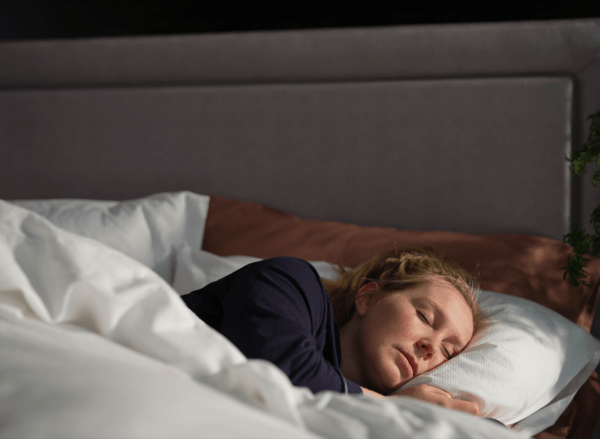
Sleep Tips for the Clocks Going Forward This Month

It’s that time of year again – on 31st March, we’ll all turn the clocks forward one hour and welcome the longer and brighter days of summer. However, the clock change means a sudden shift in the daylight exposure, something which is essential for our internal body clock to maintain a 24-hour rhythm track.
That’s not all – clocks going forward for many of us means one less hour in bed!
To help maintain quality sleep in the days following the clock change, we spoke with Alison Jones, sleep expert at Sealy UK, to share her six top tips to help you fall asleep faster and stay asleep longer.
1. Stick to your usual sleep schedule
While it may be tempting to have a lie-in to catch up on the lost hour of sleep, make sure to stick to your usual sleeping pattern, so that you go to bed and wake up at the same times as usual. While it may be difficult to wake up an hour earlier than usual, and in turn fall asleep an hour earlier in the evening, this routine is essential in regulating your internal body clock and helping you overcome the clock change quicker.
2. Take a bath
Trying to sleep an hour earlier than usual can be difficult, especially when you may not feel tired enough, however one way to combat this is to take a bath. Not only is a bath a great way to relax and unwind, having a bath before bed can actually help to promote sleep and induce tiredness. Your temperature naturally dips at night as your body prepares for rest, beginning about two hours before sleep. When you soak in a hot bath, your temperature rises by a degree or two, and the rapid cool-down immediately after the bath imitates this natural decrease of your body temperature, helping you to fall asleep faster.
3. Avoid a nightcap before bed
According to a study by Sealy UK, one quarter (25%) of us admitted to enjoying alcohol within three hours of going to bed. And while a nice glass of wine might be an enjoyable way to de-stress at the weekend, alcohol can have a negative impact on our rapid eye movement (REM) sleep, which is often considered the most restorative stage of sleep.
While it may help you to fall asleep faster after the clock change, you’ll spend less time in your REM phase of sleep – meaning you’re more likely to wake up feeling unrested and drowsy. If you still want to enjoy a nightcap in the evening, try to only have one, and have it as early in the evening as possible to minimise the effects.
4. Focus on your breathing
If you find it difficult to fall asleep after the clocks spring forward, there are some breathing techniques that you can try to help you drift off. Breathing exercises can help to reduce stress and calm your body and mind at bedtime. A simple technique to try is to close your eyes and concentrate on slow and steady breathing – inhaling through your nose and exhaling through your mouth. Breathe in for 3 seconds, hold your breath for four and breathe out for five seconds. This technique truly helps you to unwind and relax.
5. Create the perfect sleep environment
When trying to adjust your sleeping pattern, the brain can stay active for a while, however falling asleep will be a lot easier if you have the ultimate cosy yet comfortable bed. Choosing a mattress that suits your body’s individual needs is key for getting good quality sleep. For example – for those looking for spinal support, Geltex mattresses are a great option, as the gel-infused foam helps with pressure relief and breathability throughout the night. Others, who may sleep better in cooler environments, should opt for mattresses with Purotex and Adaptive technology to help support a cool and refreshing night’s sleep.
6. Avoid napping
The clock change can leave many of us struggling to sleep, and feeling tired for the following days. However, it’s important that those of us struggling to sleep avoid taking naps throughout the day.
It may sound unusual, but people who struggle to get a good night’s rest are the ones who need to avoid naps the most. If you’re regularly having problems sleeping, having an afternoon siesta can actually make your sleeping pattern worse, as it is likely to disrupt your natural waking and sleeping time, and make adjusting to the new daylight hours even harder.













































